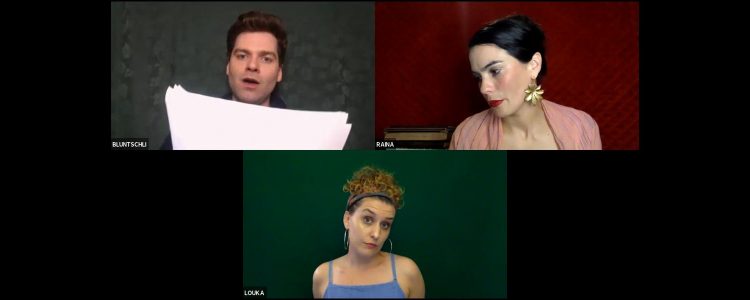“It is the business of the future to be dangerous; and it is among the merits of science that it equips the future for its duties.”
Alfred North Whitehead, Science and the Modern World
Terry Teachout on the arts in New York City
“It is the business of the future to be dangerous; and it is among the merits of science that it equips the future for its duties.”
Alfred North Whitehead, Science and the Modern World
(This is the latest in a series of arts- and history-related videos that appear in this space each Monday, Wednesday, and Friday)
“If you don’t think about the future, you cannot have one.”
John Galsworthy, Swan Song
From 2006:
Read the whole thing here.Art doesn’t have to be true to life to be good, but when a work of art is true to your life, it strikes a special chord. On occasion music has this effect on me: I can think of any number of pieces that appear to embody my feelings about the world so precisely that I feel as though I might have written them. Much of Aaron Copland’s music has that effect on me, as does the streetlights-at-dusk melancholy of Goodbye Pork Pie Hat, Charles Mingus’ elegy for Lester Young.
My guess is that most people are more likely to respond in this way to works of art that make use of words, and in particular to movies, which at their best are capable of creating an impression of reality so total as to be overwhelming. For my part, though, I haven’t seen many movies that seemed true in any significant way to my personal experience. Only three spring to mind…
“That is why education seems, to me, so important: it actualizes that potentiality for leisure—if you like, for amateurishness, which is man’s prerogative. You have noticed, I hope, that man is the only amateur animal. All the others are professionals. They have no leisure and do not desire it. When the cow has finished eating, she chews the cud. When she has finished chewing, she sleeps. When she has finished sleeping, she eats again. She is a machine for turning grass into calves and milk—in other words, for producing more cows. The lion cannot stop hunting nor the beaver building dams nor the bee making honey. When God made the beasts dumb, He saved the world from infinite boredom for, if they could speak, they would, all of them, all day, talk nothing but shop.”
C.S. Lewis, “Our English Syllabus” (courtesy of Richard Zuelch)
Dan Duryea is Jack Benny’s guest star in “Death Across the Lunch Counter,” a spoof of the opening scene of Robert Siodmak’s The Killers. This clip is an excerpt from an episode of The Jack Benny Program that was originally telecast by CBS on December 4, 1960:
(This is the latest in a series of arts- and history-related videos that appear in this space each Monday, Wednesday, and Friday)
“You’re only allowed three great women in your lifetime. They come along like the great fighters, every ten years.”
Chazz Palminteri, screenplay for A Bronx Tale
* * *
Of the artistic havocwrought by the coronavirus pandemic, among the most grievous losses was the cancellation of American Players Theatre’s 2020 season. Located in Spring Green, the rural Wisconsin village that is also home to Frank Lloyd Wright’s Taliesin, APT is little known outside Wisconsin but universally admired by well-traveled theater buffs for the consistent excellence of its productions. A 13-actor resident “Core Acting Company” augmented by summer-only artists performs classics and modern masterpieces in two spaces, a 1,089-seat outdoor amphitheater atop a wooded hill and a handsome 200-seat indoor house….
For all these reasons, it is a pleasure to report that APT has staked out a significant online presence with “Out of the Woods,” a six-installment series of play readings that are streamed live every Friday—the last one goes up on July 17—and will be available for viewing through July 26. The performances feature the core company and other APT regulars, all of whom are appearing from their separate homes via Zoom….

Of the “Out of the Woods” readings that I’ve seen to date, the most comprehensively satisfying was a performance of George Bernard Shaw’s “Arms and the Man” directed by William Brown, an APT veteran who is familiar elsewhere for his sterling work with Chicago’s Writers Theatre….
One reason why this production comes off so well is that Shaw’s plays, this one very much included, are conversation pieces full of witty talk that lends itself to a stripped-down, dialogue-driven presentation….
“Julius Caesar” is an inescapably trickier proposition—not because Stephen Brown-Fried’s staging is any less resourceful but because Shakespeare’s play contains action-based scenes, in particular the assassination of Caesar (Brian Mani), whose visceral impact can only be hinted at in a socially distanced reading….
These qualifications notwithstanding, this “Julius Caesar” is still immensely watchable…
* * *
Read the whole thing here.| M | T | W | T | F | S | S |
|---|---|---|---|---|---|---|
| 1 | 2 | 3 | 4 | 5 | 6 | 7 |
| 8 | 9 | 10 | 11 | 12 | 13 | 14 |
| 15 | 16 | 17 | 18 | 19 | 20 | 21 |
| 22 | 23 | 24 | 25 | 26 | 27 | 28 |
| 29 | 30 | |||||
An ArtsJournal Blog